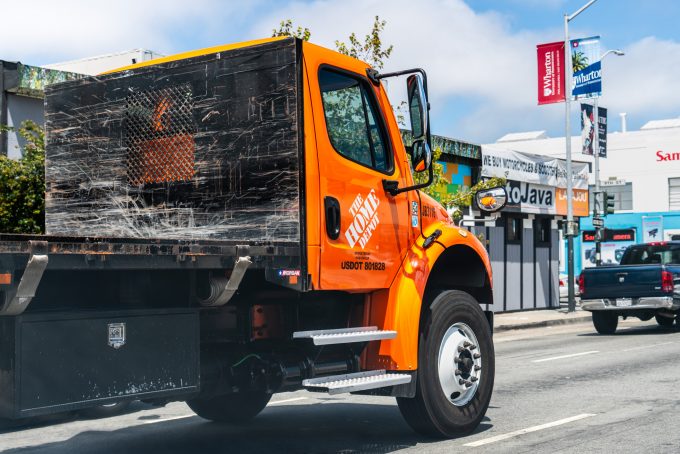A long slow road to recovery for US trucking – some operators won't make it
The recent cut in interest rates is not lifting the US trucking industry out of ...

Home Depot, one of the world’s ten largest retailers, is taking an increasingly proactive approach to its transport capacity.
Having secured a cargo ship a few months ago, to move its essential cargo from Asia to its home market, the company is now offering open capacity on flatbed trucks, used to deliver its goods to other shippers through an online freight brokerage platform.
In June, the giant retailer of home improvement supplies turned heads when it decided to charter a ship to ...
'Disastrous' DSV-Schenker merger would 'disrupt European haulage market'
New senior management for DSV as it readies for DB Schenker takeover
Volumes set to 'fall off a cliff' as US firms hit the brakes on sourcing and bookings
Asian exporters scramble for ships and boxes to beat 90-day tariff pause
Amazon pushes into LTL for small package fulfilment and UPS does a u-turn
Temporary tariff relief brings on early transpacific peak season
Pre-tariff rush of goods from US to China sees air rates soar, but not for long
Forwarders 'allowing the fox into the chicken run' by supporting 'hungry' carriers

Comment on this article